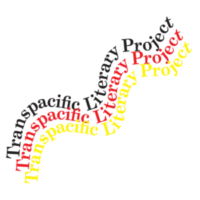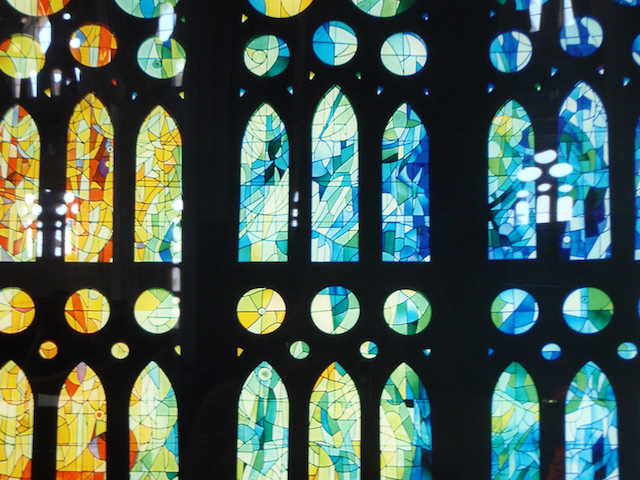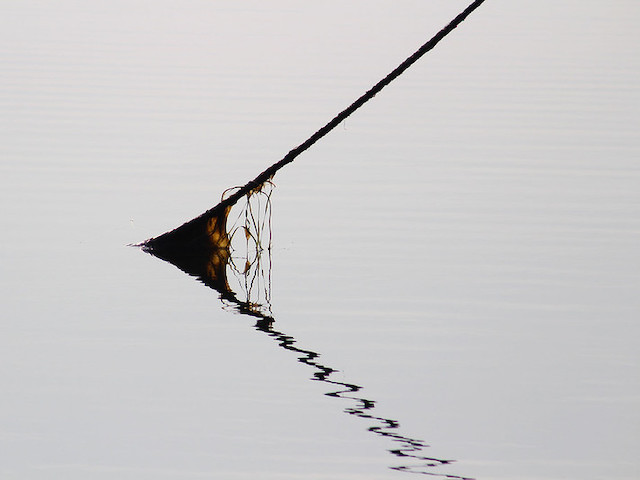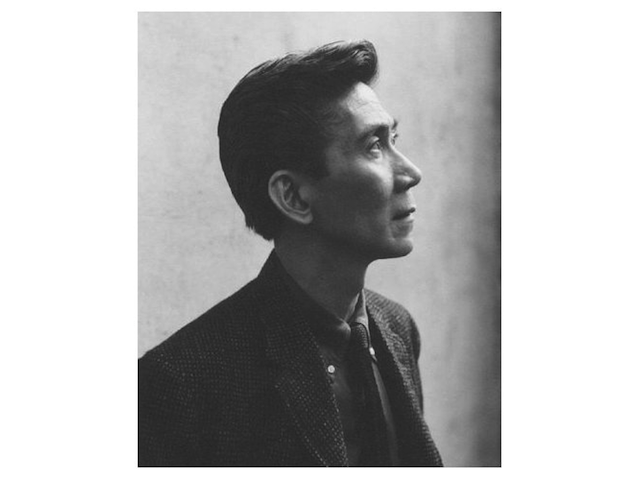Half a century on, what does it mean to be part of ASEAN?

August 7, 2017
 On August 8, 1967, ASEAN—the Association of Southeast Asian Nations—came into being with the signing of a document in Bangkok. Initially consisting of Indonesia, Malaysia, the Philippines, Singapore, and Thailand, ASEAN opened up to more countries over the years: Brunei, Laos, Myanmar, and Vietnam, with Cambodia bringing it up to ten in 1999. (East Timor formally applied for membership in 2011; its application is still pending.)
On August 8, 1967, ASEAN—the Association of Southeast Asian Nations—came into being with the signing of a document in Bangkok. Initially consisting of Indonesia, Malaysia, the Philippines, Singapore, and Thailand, ASEAN opened up to more countries over the years: Brunei, Laos, Myanmar, and Vietnam, with Cambodia bringing it up to ten in 1999. (East Timor formally applied for membership in 2011; its application is still pending.)
ASEAN’s motto is “One Vision, One Identity, One Community.” But what does that actually mean in this sprawling, diverse region? Is there a single identity that links communist Vietnam with tiny, technocratic Singapore or with Indonesia, the world’s largest Muslim nation that houses almost half the population of ASEAN?
The ASEAN anthem states the organization’s aims as: “For peace, our goal from the very start/ And prosperity to last.” And sure enough, perhaps inevitably, ASEAN’s goals and achievements have largely been economic and political. Which is not to be lightly dismissed—relative lack of conflict and a growing economy have benefited the region, even if the rewards have accrued to some countries more than others.
And yet, what of community? How much cultural exchange takes place within the Southeast Asian region, particularly given the language barriers and relative lack of translation between ASEAN languages, not to mention very different literary traditions? With such varied demographics and disparate histories, particularly around colonialism and its aftermath, does anything unite these nations except geographic proximity? What, if anything, is the Southeast Asian identity?
There are no easy answers to any of these questions, but they are ones that, hopefully, will continue to be asked.
To mark the 50th anniversary of the founding of ASEAN, the Transpacific Literary Project presents a series of poems by writers across Southeast Asia.
Ponder, Bed
by Fice KB
The sweat and seminal fluid infested mattress,
the warm saliva interacting ingested actress,
the passing of passionate souls,
the lassoing of immaculate ghouls.
Moments of warm-spirited connections becomes stale almost instantaneously,
dusting off residual angel dust from previous incarnations.
Religiously flowing absinthe, add synth and with accent,
even the tear on the bed sheet looks like …
Fully conscious and able-bodied,
when the tide is low and everybody’s sleeping with the fishes,
at least for the night, times like these,
thinking what type of cheese best goes on a toasted ham sandwich and a jalapeno beef burger,
leaning towards the quality of living in third world countries,
times like these, raining in seas, counting peas, caps on knees, deceased bees.
’s published works include Lelaki-Lelaki Merbahaya (Rabak-Lit, April 2016), Bayang Janus (Legasi Oakheart, April 2017) and The Yesterdays & Temu Bual Manusia(wi) Kotor (Penerbitan Langit, April 2017). He resides in the district of Kuala Belait, in Brunei Darussalam.
money for your english
by Khairani Barokka
“if you do not speak english, you may not be able to survive
it is sink or swim.” in sixth grade, i stood under a boil of a sun
at our school assembly, speaker warning us of Globalisation
Incoming, of others waiting at the wings to swoop up money,
pure job-snatching; sit on a panel in 2017 on literature, am
asked how indonesian writers may attain competitiveness
in a global market. i look out at such supple faces, wanting
to tell them of crossed-out verbs and endless swimming in
an ocean of sensemaking, word irregularity, of putting faith
in what you feel as innately important then to hope for sharp
swallowing of bent words, trust in a reader, for jolts of inner
lightning. i want to illustrate the gaps between bloomberg
business and cadence, rhyme, and yet, ticker-tape remains
a goliath of its own desperate poetry. despite inevitable dearth
of the milky way, children grow and the eteks and mak tuos
are aunties now; but i ask forgiveness for english every day,
i want to tell the students listening close to us, it is poor
version dangled in front of our eyes of the depths of story
we kept in our peaked-roof architectures eons-long, this
performance of writing in public is not a remittance of culture,
it is attempt at asserting mine while erasing mine, while
forgetting mine then remembering mine, while in commerce
we must while in book sales we measure the weight of
a tongue when the oral was nearly wiped out when more
languages fall to their deaths when the poetry is a crook’s
way of getting myself healthcare denied me in my own home
by history and resource extraction while obtaining expertise
in stories of colonialism and visuality and poetry while you
are remembered while you are forgotten while you become
aunties, uncles because you see what it gets you it got me
my life while i want to swallow forgetting, burn words, maaf.
maaf – sorry in indonesian
is most recently author of debut full-length poetry collection Rope (Nine Arches), author-illustrator of Indigenous Species (Tilted Axis), and co-editor of Stairs and Whispers: D/deaf and Disabled Poets Write Back (Nine Arches). She is a PhD researcher at Goldsmiths in Visual Cultures. www.khairanibarokka.com
Continent-making
by Joel M. Toledo
A scaffolding, lofts.
Why must the makeshift be ridiculed
And calligraphy proposed?
Intricacy, the stuff of art,
also of genetic speculation,
loses to ether, every time.
I mean, there’s little to see here
unless you want to stay a bit,
sit, wait for remuneration.
Think of the kindness water
has afforded to earth—
that kind of hold on weather,
a twig of better use to the dove
were it not for the idea that
deliverance arrives in pairs.
There must be two arks.
A minuet, the wind
that starts it the ripples.
I meant harmony
back there.
I meant a fresh start.
is the award-winning author of five books of poems, including The Blue Ones Are Machines (Vagabond Press, Australia, 2017). He teaches literature at Miriam College.
Paradise
by Boey Kim Cheng
It has slipped the laborious arcs
of trade-routes, sealing the spices’
scent from ferreting ships, sitting
beyond the itinerary’s telescope.
Only when the mind has peeled off
reason and history will you see
it, and perhaps then give away
all these cloud-capped towers
and Utama’s crown
for a place where we can begin again,
in the opposite direction
from what we are.
has published five collections of poetry and a travel memoir entitled Between Stations. Born in 1965, he emigrated from Singapore to Australia in 1997. He taught creative writing at the University of Newcastle for 14 years before joining Nanyang Technological University in 2016.
Untitled #14
by Phu Kradat
tr. Peter Montalban
There’s none don’t want to go back home
Songkran okay New Year whenever day
day off day on just go on anyway
return the hope the plan of one and all
tangled in a diligence of drudgery
abiding foreign odors in a distant land
dawn to dusk and plunging into night to stand
that is, afford two feet to stand against the beating.
Lao lute melodies still sing in coursing blood
streams of poetry in flood just won’t run dry
tough robust youth flies crisp undimmed
Isaan honeysuckle scents float clear upon the wind.
There’s none truly want to leave afar O land of birth!
At birth the old home lodged in us its code:
still bound to fragrant earth, its greenery,
rice fields fling legs to grip the mountain wood
as far as can be seen you see it clean.
Restless whirls the world in dizzy busy turns
churns out kids grandkids great-grands great-greats and on
tho paddy chicken field and duck remain
none turned by time escape its change
but tangle up in loud melée
step hard and press feet freeze pluck fades
beginnings end then stands the heart alone
till all that’s left is chant for luck
complain then spit spit then wrap it up and toss it in
good good good there’s only good till overflow and sink
many sins extreme, look up and see . . . equal opportunity.
There’s none don’t want to be back home
no matter now or through long twists and turns
as screaming midnight thoughts plunge down to still
day on day off it shines and calls so clear
and none themselves desire to clog the roads
nor spilled pollutants cause another’s bitter misery
nor ever have aspired to hold back flooding tears
swollen sinews drenched in oozing sweat, to reach . . . whose home?
(in a whisper . . .
Please you of all should understand
be so good and wake from sleep
perhaps plake clear some things encrypted here)
is the nom de plume of Thanat Thammakaew, born 1977 and raised in northeastern Thailand. He is the author of two volumes of short stories, a collection of poems, and the novel Nerathet (“Exile”).
is the translator of Thai author Uthis Haemamool’s SEA Write award-winning novel The Brotherhood of Kaeng Khoi (original: Lap Lae, Kaeng Khoi) and numerous other books.
© Phu Kradat. By arrangement with the author. Translation © 2016 Peter Montalban. All rights reserved. First published in Words Without Borders, October 2016. By permission of the publisher.
Inside Submarines
by Phan Nhien Hao
tr. Linh Dinh
We live inside odd-shaped submarines
chasing after secrets and the darkness of the ocean
on a voyage toward plastic horizons
where vague connections can never be reached
and hopes are not deployed
before the storm arrives and the alarm command starts
to rouse the last illusions to stand up and put life jackets on
looking to each other for help
Once I was at the equator
trying to slice the earth in half along the dotted line
but someone held my hand and said:
“If you do that, friend, water will fall into the void,
and then our submarine
won’t have any place to dive.”
Phan Nhiên Hạo was born in Kontum, Vietnam in 1967 and immigrated to the U.S. in 1991. He is the author of two collections of poems in Vietnamese, Thiên Đường Chuông Giấy (Paradise of Paper Bells, 1998) and Chế Tạo Thơ Ca 99-04 (Manufacturing Poetry 99-04, 2004). In 2006, Tupelo Press published Night, Fish, and Charlie Parker, a bilingual poetry collection translated by Linh Dinh.
’s latest books are Postcards from the End of America (nonfiction) and A Mere Rica (poetry).



